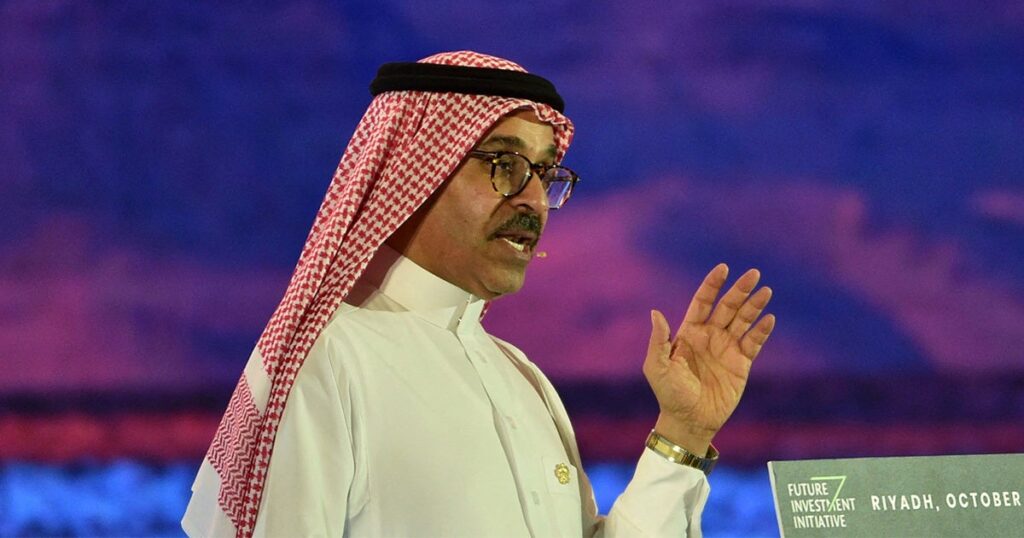The abrupt resignation of Nadhmi al-Nasr, CEO of the monumental Neom project in Saudi Arabia, has ignited serious discussions surrounding the project’s humanitarian implications. Neom is an ambitious urban development initiative featuring The Line, an extraordinary concept of twin skyscrapers stretching 100 miles. Al-Nasr, who led the project since its inception in 2018, left his position shadowed by accusations from a Channel 3 documentary revealing that over 21,000 foreign workers may have died while constructing Neom. This staggering figure does not account for the indigenous population reportedly displaced or missing due to the project, further amplifying the project’s controversial nature. The abrupt exit raises questions about the underlying reasons for his departure and the project’s management amidst the growing scrutiny on human rights abuses.
The reorganization came with the appointment of Aiman al-Mudaifer, a seasoned real estate executive from Saudi Arabia’s Public Investment Fund, hinting at possible significant strategic shifts within Neom. Al-Mudaifer steps into a position burdened by troubling allegations and the high-profile fallout concerning labor conditions and human rights. The change was described as a “natural evolution” by Neom’s board, yet insiders have suggested it may correlate with efforts to mitigate the damaging narrative surrounding alleged deaths and mistreatment of workers. This leadership shift points to a broader trend of accountability and perhaps an attempt to realign the project’s vision with ethical standards, at least publicly.
Behind the impressive plans of Neom lies a darker reality defined by financial challenges and logistical delays. The huge budget overruns have invited intervention from the Public Investment Fund of Saudi Arabia as they seek to salvage a project that appears increasingly difficult to bring to fruition. Despite al-Nasr’s extensive experience managing significant infrastructure projects, the scope of Neom – replete with a host of extravagant features including a ski resort in the desert and a floating business district – arguably exceeded the managerial capabilities of even the most experienced developers. Reports have indicated a series of delays and concerns over the feasibility of such groundbreaking plans, exacerbating frustrations and tensions among those involved.
Adding to the turmoil surrounding Neom, two high-profile Western executives who faced allegations of corruption have also left their posts. This trend of executive departures seems to indicate a concerted effort by Saudi leadership to stabilize Neom’s operations in light of scandal and controversy. The apparent housecleaning at the highest levels speaks to internal struggles and a critical awareness of the increasingly negative spotlight being cast on the megaproject. If nothing else, this suggests that the administration is recognizing the potential impact of the ongoing human rights narrative on their financial and operational aspirations.
The juxtaposition of Neom’s visionary plans against the backdrop of numerous deaths and an evident lack of accountability evokes moral complexities surrounding such gigantic undertakings. The figures reported in the documentary, if verified, raise significant ethical concerns regarding the treatment of workers and the prioritization of capital over human life, painting a troubling picture of modern development amidst widespread human suffering. Moreover, the allegations of corruption amongst top executives hint at a pervasive culture of impunity that could infiltrate similar grand projects globally, often at the cost of vulnerable populations.
In summary, the recent transformation within Neom’s leadership, underlined by disturbing allegations of worker fatalities and executive misconduct, encapsulates a much larger discourse on the ethical obligations tied to monumental developments in the context of human rights. As the world watches closely, the implications of Neom extend beyond its borders, posing crucial questions about the global construction industry’s responsibilities to the labor force and the environment. The outcome of Neom’s ongoing saga will not only impact Saudi Arabia’s image but may also serve as a bellwether for future projects that dream of being bold and innovative amid haunting realities of exploitative labor practices.

